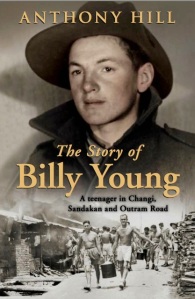Do you sometimes wish the Internet had never been invented? That we could go back to those more innocent times before lost passwords, suddenly deleted text, endless emails, spam, cybercrime and online advertising? To those more leisurely, writerly, happier times altogether? At least as they were in retrospect.
 Such thoughts crossed my mind the other day when I got a message on the iPad from Apple and the iCloud asking me to re-enter my password. Which I did. Correctly.
Such thoughts crossed my mind the other day when I got a message on the iPad from Apple and the iCloud asking me to re-enter my password. Which I did. Correctly.
Only to have it rejected. I entered it again. And again. And after the third attempt found myself locked out of the site. No emails!
I was bereft. Incommunicado. Cut off from the world.
The only thing to do was to ring my ever-helpful computer doctor and ask for a house call to make things better again. Which of course he did for a modest fee.
Though as he left I repeated my vow never to succumb to the electronic temptress promising a paperless world, where written words can evaporate into an ethereal Cloud. I'll still print out everything important in hard copy.
Indeed, as I closed the door, I even began to wish back those days of hand-written (or at any rate typed) letters, compositions that were properly manuscripts, sharpened pencils, the intoxicating smell of printer's ink on newsprint, the tap and reassuring ting! of a little bell on the old-fashioned typewriters as you came to the end of line. Typewriters that had no 'Delete' button ... but then no need for passwords, security lock-outs and medical attention either.
Of course a moment's reflection was enough for me to realise that, for all its flaws and frustrations, the digital world is an infinitely superior one for writers, creative artists and people everywhere. The ease of composition, editing and publishing ... the speed of communications in word, sound and pictures ... the instant access (usually) to the vast amount of research information available on the Net...
We’re so much better off that we were even a decade ago. A friend of mine still uses the old ways – telephone and snail mail. She doesn't have a computer of any kind. Doesn't trust them. But as she writes detailed family histories, the amount of time wasted in writing long letters or travelling to distant archives on spec, waiting for a response and the follow-ups, could by now be counted in years.
Of course one has to be careful with any information found on the Internet. It's important to double check dates and sources; and very often it's necessary to visit the archives for additional material. But as a first step in the research process the Net is without parallel, and very often a fact that might take hours to discover in a library can be obtained from a Google search in minutes. 
Example. During the writing of The Story of Billy Young, I needed to know the name of the passenger ferry that plied between Melbourne and Burnie in Tasmania in 1941. Within a matter of moments up came a dozen references on the screen, including photographs of the vessel Taroona from the State Library of Victoria and several newspaper reports verifying the name.
It would take my friend days to discover that small but important fact relying on the old ways of letter or personal visitation – even assuming she knew where to go in the first place.
No. For all my wishing away the Internet the other day, it would no sooner have been granted than I'd be wishing it back again. Passwords and all.
